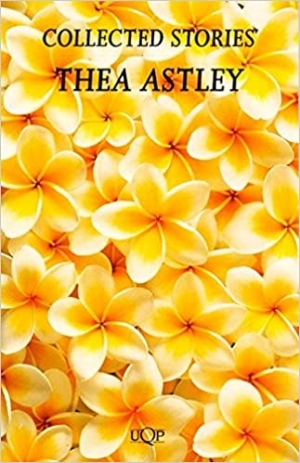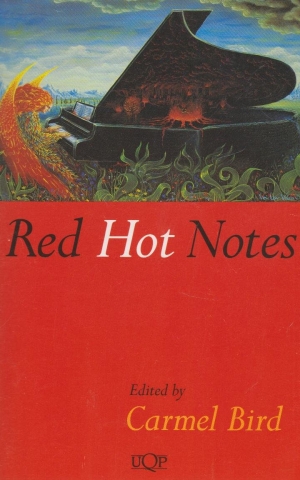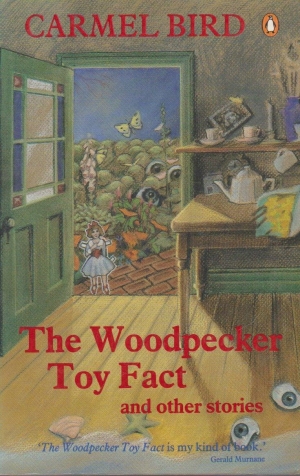Carmel Bird
One of my all-time favourite short stories, ‘The Shipwreck Party’, opens this volume of Collected Stories. Any book of short pieces invites readers to enter wherever they like. I decided to start at the last piece and work backwards so that I could end up with my old favourite. The pace, structure, rhythm, images, restraint, wit, irony, and tone of this short narrative always work their magic on me, and I wait for the last thirty lines in joyful and horrified expectation. Having read the book backwards, I write this review in a mood of sheer pleasure.
... (read more)Sally Muirden’s second novel sits well with her first, Revelations of a Spanish Infanta. In each case, the author works through an elaborate historical lens to construct a multi-layered narrative in which the focus is the intimate life of a woman.
... (read more)‘I’d spent my childhood and adolescence on this sandy moonscape. I was sure I had something to say about it. I just didn’t know what.’ The book is Robert Drewe’s response to that thought. It is, as he says, a portrait of a place and time. The place is Perth; the time the fifties; the portrait is so very sharp, atmospheric, brutal, and deeply moving. There is a strange and haunting sweetness in the voice of the narrator, a clean, wondering charm. The subtitle of the book is ‘memories and murder’ and, like ghastly mutilations discovered outside the shark net, the murders and other horrible deaths drift before our startled eyes.
... (read more)One of the principal characters in much of Thea Astley’s writing is Queensland. ‘An intransigent fecundity dominated two shacks which were cringing beneath banana clumps, passion-vines, granadillas.’ There’s a lot of sad poetry about the place; and the distances that separate us, I mean the physical distances, are like verse-breaks in a ballad; and once, once we believed the ballad might never end but go on accumulating its chapters of epic while the refrain, the almost unwordable quality that mortises us together, retained its singular soul. How express the tears of search?
... (read more)Were it not for the timing, it would be easy to speculate that this richly evocative collection of pieces about music was the inspiration for Jane Campion’s glorious film, The Piano. So many elements of the film – the dominant image of the beached piano, the powerful undertow of sexual passion, even the unexpected violence-are present in this book in the most uncanny similitude. I should not be surprised since Carmel Bird has already displayed her uneasy fascination with the film in her dazzling essay ‘Freedom of Speech’ (in Columbus’ Blindness and Other Essays) and in her introduction to Red Hot Notes she admits that the film was a catalyst for the idea of various writers exploring ‘the complex feelings that surround, and embed themselves in, the human response to music’.
... (read more)Until I reviewed Marion Halligans novel Lovers’ Knots, I didn’t really know much about what a lover’s knot was. And now I know more than I used to know about the word ‘cockle’.
... (read more)Grand Days is volume one of Frank Moorhouse’s Palais des Nations novels, and is connected to the author’s previous works Forty-Seventeen and The Electrical Experience by the characters of Edith Campbell Berry and George McDowell. The principal narrative of Grand Days goes on for 500 or so pages, and is followed by some thirty pages of notes and explanations which form another narrative. The most interesting narrative of all, to me, however, is the story of where this book fits into the life and work of Frank Moorhouse.
... (read more)There are some pretty ambiguous rats in this collection and most of them are male but ultimately, it’s the writer’s own unease that cumulatively gnaws away at happiness and achievement.
... (read more)Letters to the Editor – August 1991
Thursday, 01 August 1991Dear Editor,
Caroline Lurie (ABR No. 131) cited four common criticisms of deconstruction. I think a more important reason is the danger deconstruction poses to the privileged position of the author as the source of one or multiple meanings for a text. It is significant to note that it is mostly the authors (both of narrative and critical discourses) who are so upset about deconstruction.
... (read more)Christina Thompson reviews 'The Woodpecker Toy Fact and Other Stories' by Carmel Bird
About a year ago, when The Woodpecker Toy Fact and Other Stories was just a gleam in its author’s eye, I chanced to hear this very fancifully dressed woman read a story about childhood perception, semantic confusion, and small-town gossip. It was one of those welcome breaks at an academic conference, when we turned our attention from the analysis of art to the thing itself. And it was perhaps the context, along with the exceptional performance of the reader, which made this particular story stand out so vividly. For while it satisfied, they (by then quite desperate) desire to be enthralled by something fictive, it also played up cleverly to the critic in us all.
... (read more)







